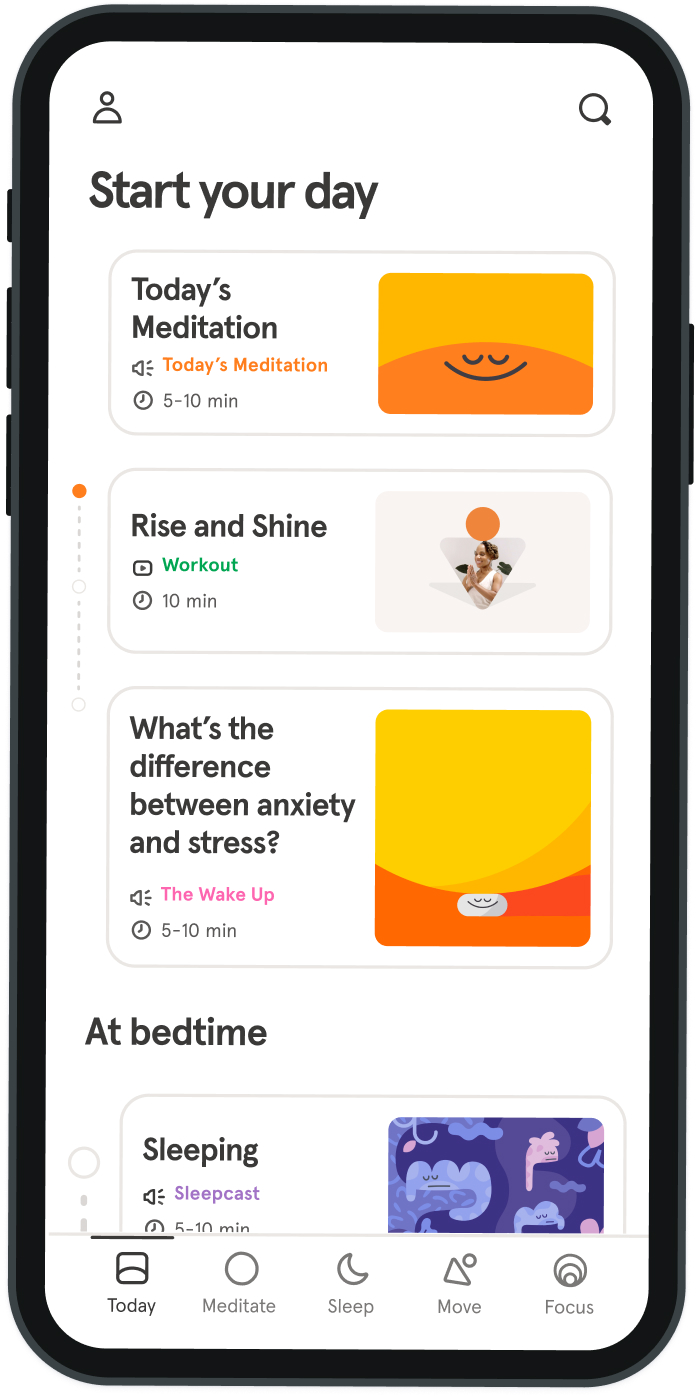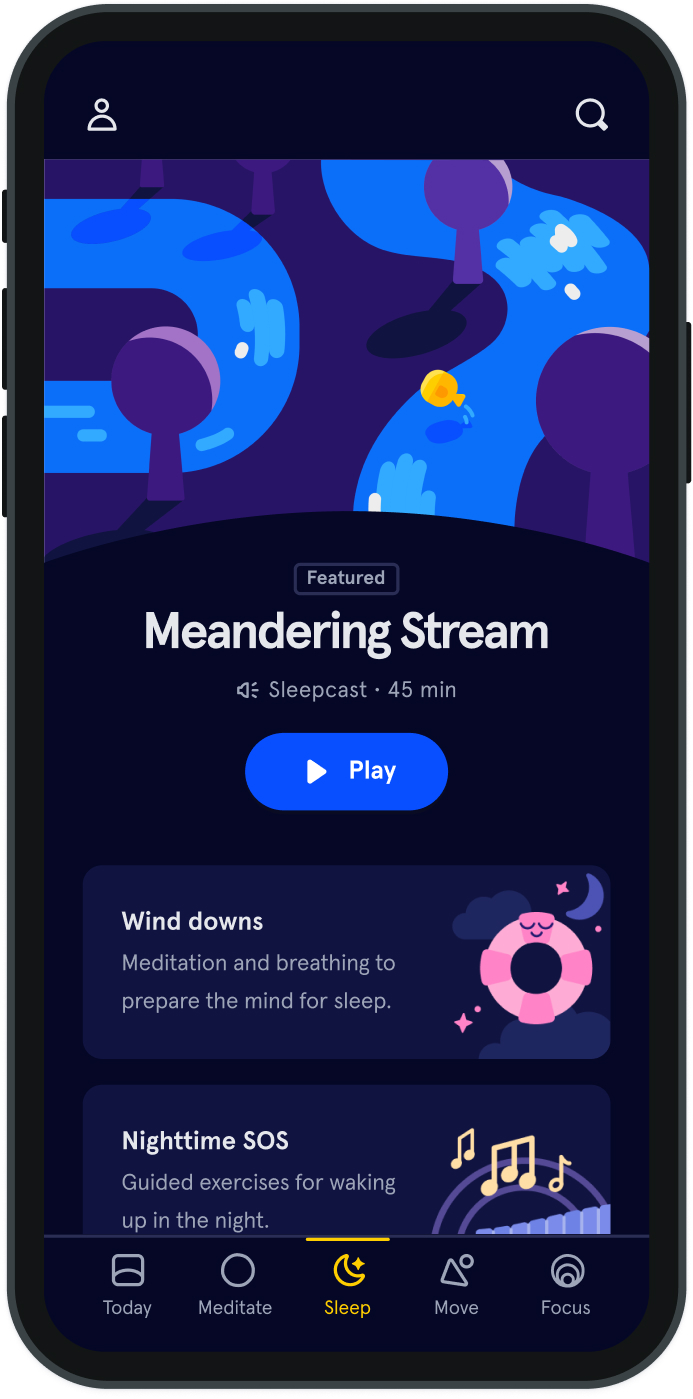What does awareness mean?
Andy uses the word “awareness” quite a lot in the Headspace sessions. But it took me quite a long time to realize what he meant by that. It’s exactly the right word, but I spent a lot of time confused between attention and awareness.
So what’s the difference? Are we meant to be paying attention, or being aware? Well, the answer to the second question is both. When we’re meditating, we’re working with attention by resting our attention on the breath, and noticing when our mind wanders. But awareness is more subtle. The way I like to think about it is with a simple analogy. Imagine watching a horror movie alone, at home, with the lights off. We’ve all done it. The movie owns you. It’s terrifying. It’s all you’re aware of and so it has complete control over your emotions. Now contrast that with watching the movie alone, at home, but this time with the lights on. It’s the same movie; you’re still alone. But with the lights on, you have more context. You can see that the movie is playing on a TV. You can see other things in the room that remind you you’re at home watching a movie. It’s still scary, but it’s not as bad as it is with the lights off because you have a bit more perspective. So awareness of our thoughts is like having the lights on while we think – we’re still having the same thoughts, but with a continuous awareness of them, We’re not totally owned by them because we can see them for what they are. We have more perspective. They come, they go. They’re just thoughts. When the lights are off, it’s very easy to get sucked into believing that our thoughts represent the absolute truth. We make a mistake and think, “I’m a bad person,” and it has the corresponding emotional and psychological impact. But with the lights on, we see the thought, and although we might notice that when we make a mistake we think, “I’m a bad person,” that thought doesn’t make it the truth. Psychologists call this ability to step back from the content of our thoughts “cognitive defusion,” and consider it a much healthier mode of thinking than its opposite. What I find interesting is that this awareness seems to arise almost as a side-effect of practicing meditation. By repeatedly focusing on the breath, and noticing when our mind wanders, we naturally start to develop awareness of where our mind is and where it’s going. And, of course, Andy encourages us to practice being aware during the day, as well. The more we practice, the more we become familiar with being aware of our thoughts, and so it starts to become second nature. And that’s a defining moment. The psychological benefit is profound. Sure, life still happens, and things will still distract us, but when our default is to be aware of where our thoughts are, we’re more balanced, psychologically healthier, and very much less at the mercy of them.



Be kind to your mind
- Access the full library of 500+ meditations on everything from stress, to resilience, to compassion
- Put your mind to bed with sleep sounds, music, and wind-down exercises
- Make mindfulness a part of your daily routine with tension-releasing workouts, relaxing yoga, Focus music playlists, and more
Meditation and mindfulness for any mind, any mood, any goal

Stay in the loop
Be the first to get updates on our latest content, special offers, and new features.
By signing up, you’re agreeing to receive marketing emails from Headspace. You can unsubscribe at any time. For more details, check out our Privacy Policy.
- © 2025 Headspace Inc.
- Terms & conditions
- Privacy policy
- Consumer Health Data
- Your privacy choices
- CA Privacy Notice
